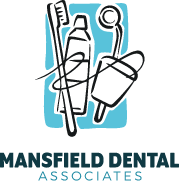Dr. Jones and Dr. Harris are concerned with your overall wellbeing as well as your oral health, and that is why Mansfield Dental Associates is taking part in National High Blood Pressure Education Month. You may already know that gum disease can contribute to or worsen cardiovascular disease, diabetes, and dementia, but did you know that high blood pressure can lead to oral health problems? Your Mansfield dentists explain the link between high blood pressure, also known as hypertension, and the health of your teeth and gums.
What is hypertension?
Blood pressure refers to the force applied to the artery walls as your heart pumps blood to the rest of your body. When blood pressure is high, your heart must work harder to pump. Hypertension can cause injury to blood vessel walls, increase your risk of developing blood clots, damage your heart muscle, and cause damage to other organs by restricting the normal flow of oxygen-rich blood throughout the body.
What are the symptoms of high blood pressure?
Many patients exhibit no symptoms and do not know they have hypertension until it is discovered by a health care provider. Sometimes, high blood pressure is not discovered until it causes problems with the heart, eyes, or kidneys. Symptoms of extremely elevated blood pressure include headaches, blurred vision, shortness of breath, chest pain, nausea, and vomiting. If not treated, hypertension can lead to heart attack, stroke, kidney failure, and vision loss.
How is high blood pressure linked to my oral health?
Medications used to treat high blood pressure can wreak havoc on your oral health. Many antihypertensive drugs cause xerostomia, a condition that is characterized by decreased saliva flow. As saliva has a protective effect on the teeth and gums, a lack thereof will alter the pH of the mouth, allowing oral bacteria to run rampant and acids to attack the teeth. Calcium channel blockers are another high blood pressure medication that can cause oral health issues. These drugs can cause a swelling and enlargement of gum tissue known as gingival overgrowth, which can make your gums sore and difficult to keep clean. Patients with enlarged gum tissue must be vigilant with oral hygiene and may need to see Dr. Jones or Dr. Harris as frequently as every three months for checkups and cleanings.
Why does my dentist take my blood pressure?
Because hypertension strikes roughly one out of every three Americans, often without displaying any symptoms, the American Dental Association recommends that dentists take blood pressure readings for every new patient and at least once yearly at checkups. This not only helps detect new cases of hypertension, but it also allows your dentist to provide the safest treatment possible for patients at a high risk of stroke or heart attack.
Dr. Jones and Dr. Harris are happy to educate patients on the link between oral health and overall physical health. If you have high blood pressure and are concerned about your oral health, contact our Mansfield dentist office at (817) 473-6227 to schedule an appointment. We proudly serve the communities of Mansfield, Burleson, Kennedale, Midlothian, Cedar Hill, Desoto, Fort Worth, Arlington, and Grand Prairie.





Recent Comments